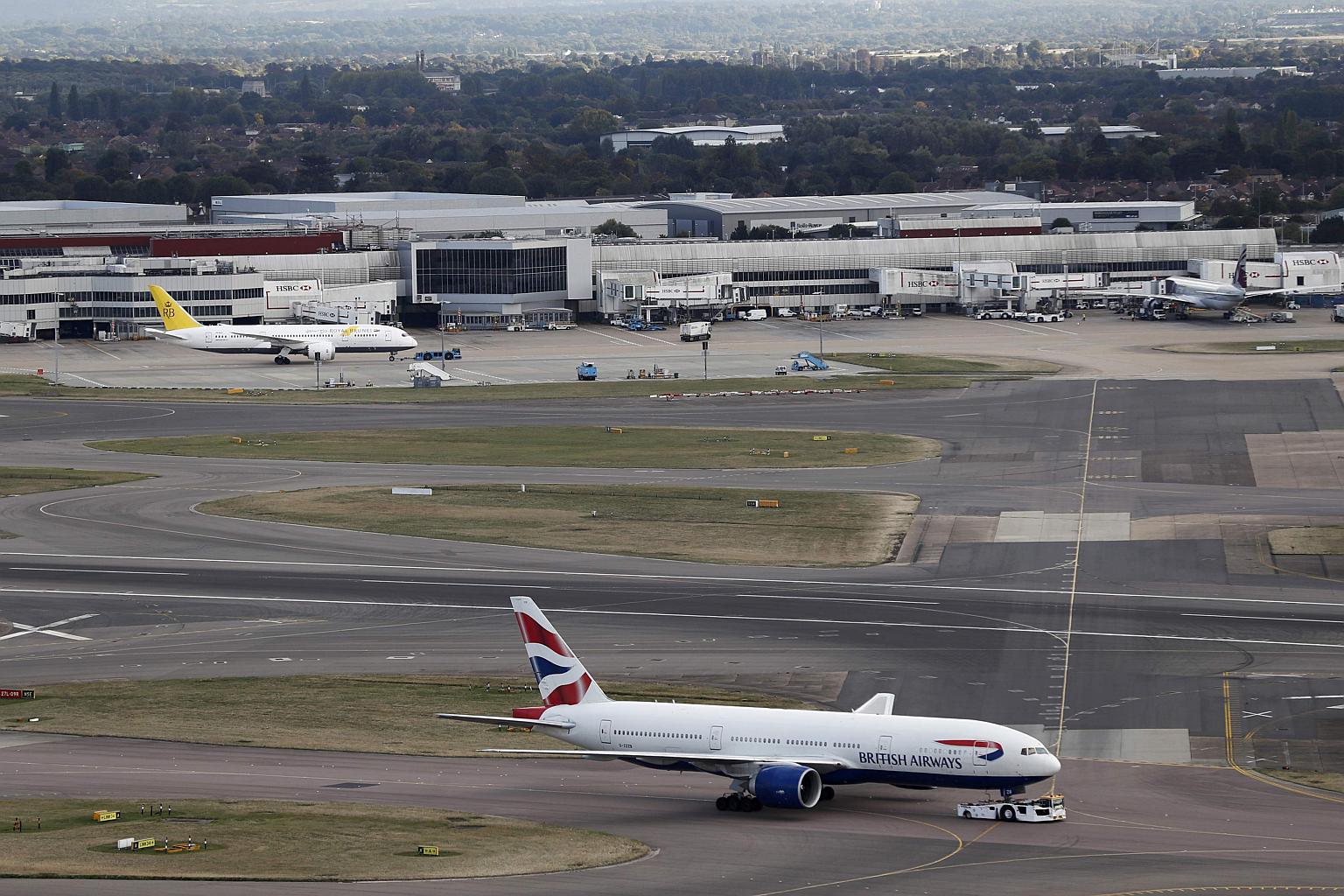British government approves expansion of Heathrow Airport
Sign up now: Get ST's newsletters delivered to your inbox

A British Airways passenger plane taxis near Heathrow Airport's Terminal 4, on Oct 11. 2016.
PHOTO: REUTERS
LONDON (Reuters) - Britain on Tuesday (Oct 25) gave Heathrow Airport the green light to build a new US$22 billion runway, ending 25 years of indecision with a plan to boost the country's global trade ambitions following the vote to leave the European Union.
The government said in its statement on Tuesday that it was proposing legally binding noise targets to provide respite for local residents, many of whom oppose expansion due to worries over noise and air pollution.
"This is a really big decision for this country but it's also the clearest sign post the referendum that this country is very clearly open for business," Transport Minister Chris Grayling told reporters on Tuesday.
The project is now likely to face legal challenges and a final vote by lawmakers in a year's time, meaning the runway can only open by 2025 at the earliest. "The government's preferred scheme will be subject to full and fair public consultation," Mr Grayling added.
The decision by Prime Minister Theresa May marks one of her biggest moves since she took office in July and puts her in conflict with some senior ministers who oppose expansion over densely populated west London, including Foreign Secretary Boris Johnson whose electoral constituency sits near Heathrow.
Mrs May told London's Evening Standard newspaper the move showed the government was willing to "take the big decisions".
"Airport expansion is vital for the economic future of the whole of the UK... Businesses will know that we are building the infrastructure they need to access global markets," the newspaper quoted her as saying. "This decision demonstrates that as we leave the EU we can make a success of Brexit and Britain can be that open, global, successful country we all want it to be."
She also said that while the government wanted the benefits of a new runway as quickly as possible, it would also make sure London and taxpayers got a good deal.
But Mayor of London Sadiq Khan said the decision was wrong for the capital, vowing to continue his opposition to the project.
"The government are running roughshod over Londoners' views - just five months ago I was elected as mayor on a clear platform of opposing a new runway at Heathrow," Mr Khan said in a statement.
"I will continue to challenge this decision and I am exploring how I can best be involved in any legal process over the coming months," he said.
Heathrow, Europe's busiest airport, had been battling with its smaller rival Gatwick for the right to expand, after successive governments failed to make a decision on a new runway due to environmental and political protests.
Heathrow is set to lose its ranking as Europe's biggest hub airport to Paris' Charles de Gaulle by 2020. With only two runways it is limited to 480,000 flights a year compared with the potential for more than 600,000 flights offered by rival European airports with more runways.
According to a three-year study by Britain's independent Airports Commission, a new runway at Heathrow would create 70,000 new jobs by 2050 and increase gross domestic product by between 0.65 per cent and 0.75 per cent by 2050, representing a £147 billion boost to the economy over 60 years.
Heathrow's established links with emerging markets also strengthened its case in the wake of Britain's vote to leave the EU in June.
Heathrow is owned by Spanish infrastructure company Ferrovial, Qatar Holding, China Investment Corp and other investors, with expansion costs paid for by the private sector, not the public purse.


